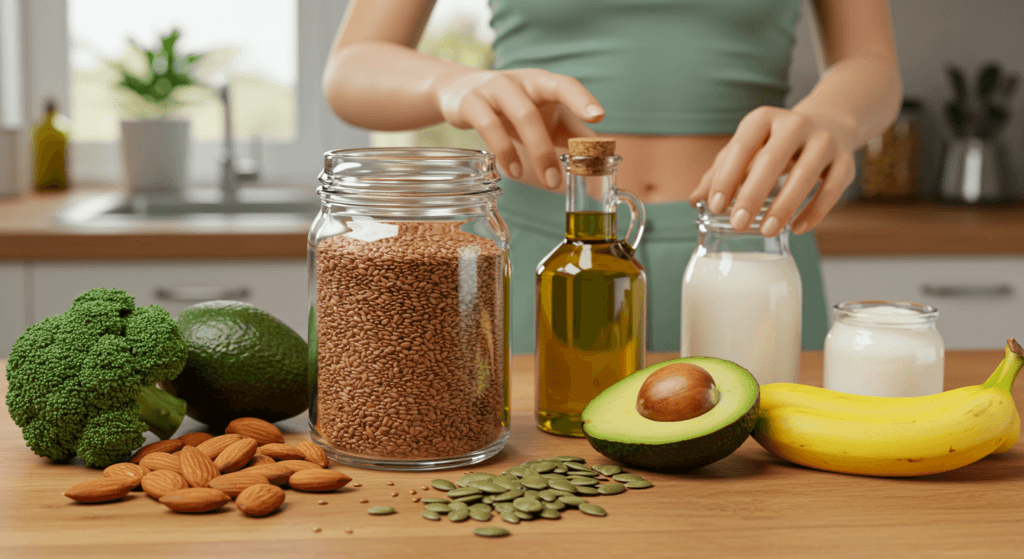Gut Health: The Key to Feeling Happier and Healthier

Did you know that your gut health affects everything from digestion to mood and energy levels? Many people overlook the importance of their gut, but a balanced digestive system can make a huge difference in how we feel every day.
If you often deal with bloating, fatigue, or brain fog, your gut might be trying to tell you something. In this article, we’ll explore why gut health matters, signs your gut might be out of balance, and how you can improve it naturally. Let’s dive in!
What Is Gut Health?
The health of your gut depends on maintaining a balanced mix of microorganisms in your digestive system. Trillions of bacteria, fungi, and other microbes support digestion, immunity, and even mental well-being. When this balance is off, it can cause a range of health problems.
A healthy gut:
- Breaks down food efficiently
- Absorbs essential nutrients
- Prevents inflammation
- Supports the immune system
- Transmits signals to the brain via the gut-brain connection.
Why Is Gut Health So Important?
1. Digestion and Nutrient Absorption
Your gut is responsible for breaking down the food you eat and absorbing essential vitamins and minerals. An unhealthy gut can cause bloating, constipation, diarrhea, and nutrient deficiencies.
2. Immune System Support
Approximately 70% of your immune system is located in the gut. A healthy gut microbiome helps your body fight off harmful bacteria and viruses, keeping you healthier overall.
3. Mental Health and Mood
The gut and brain are closely connected. The gut produces neurotransmitters like serotonin, which influence mood and emotional well-being. An imbalance in gut bacteria has been connected to anxiety, stress and depression.
4. Weight Management
Certain gut bacteria affect how your body stores fat and regulates hunger hormones. A balanced microbiome can help with weight control and prevent cravings for unhealthy foods.
5. Energy Levels
A well-functioning gut ensures proper digestion and nutrient absorption, providing your body with the energy it needs to stay active and alert.
Signs Your Gut Might Be Unhealthy
If your gut isn’t balanced, you may notice symptoms like:
- Digestive issues (bloating, gas, constipation, diarrhea)
- Frequent fatigue or lack of energy
- Sugar cravings
- Mood swings, anxiety, or depression
- Unexplained weight changes
- Skin problems (acne, eczema, psoriasis)
- Food intolerances
If you notice these signs, it’s time to focus on improving your digestive system health.
How to Improve Gut Health Naturally
1. Eat More Fiber-Rich Foods
Fiber feeds beneficial gut bacteria and supports digestion. Some of the best sources include:
- Fruits (apples, bananas, berries)
- Vegetables (broccoli, spinach, carrots)
- Whole grains (oats, quinoa, brown rice)
- Legumes (beans, lentils, chickpeas)
2. Include Probiotic-Rich Foods
Probiotics are helpful live bacteria that support a healthy gut. Good sources include:
- Yogurt (with live cultures)
- Kefir
- Sauerkraut
- Kimchi
- Miso
- Kombucha
3. Consume Prebiotics
Prebiotics are fiber-rich foods that feed probiotics. Some excellent options are:
- Garlic
- Onions
- Leeks
- Asparagus
- Bananas
- Apples
4. Stay Hydrated
Drinking plenty of water helps digestion and supports the mucosal lining of the gut. Try to consume at least 8 glasses of water each day.
5. Reduce Sugar and Processed Foods
Excessive sugar can encourage harmful bacteria in your gut. Try cutting back on sugary drinks, sweets, and highly processed foods.
6. Manage Stress Levels
Chronic stress negatively impacts gut bacteria. Activities like meditation, deep breathing, and consistent exercise can be helpful.
7. Get Enough Sleep
Poor sleep affects gut health and digestion. Target 7-9 hours of restful sleep each night.
8. Exercise Regularly
Physical activity promotes a diverse microbiome, which supports overall gut health. A daily 30-minute walk can really make an impact.
Best Supplements for Gut Health
If you struggle to get enough probiotics and prebiotics from food, consider these supplements:
- Probiotic supplements – Aid in restoring the balance of gut bacteria.
- Prebiotic fiber – Feeds good bacteria.
- Digestive enzymes – Support digestion and enhance nutrient absorption.
- L-Glutamine – Supports gut lining health.
Always consult a healthcare professional before adding new supplements to your routine.
FAQs
1. What’s the quickest way to boost gut health?
The quickest way to boost gut function is to eat more fiber, probiotics, and prebiotics while cutting out processed foods and sugar.
2. How much time does it take to heal your gut?
It varies, but noticeable improvements can be seen within a few weeks to a few months, depending on diet and lifestyle changes.
3. Can stress affect gut health?
Yes, chronic stress disrupts gut bacteria and digestion. Managing stress through relaxation techniques can improve gut function.
4. Are probiotics necessary?
Probiotics are beneficial but not always necessary if you eat a diverse diet rich in fermented foods.
5. What’s the best drink for gut health?
Water, herbal teas, and probiotic drinks like kefir and kombucha support gut health.
6. Can poor gut health cause skin issues?
Yes, imbalances in gut bacteria can contribute to acne, eczema, and other skin conditions.
7. How does gut health affect mental health?
The gut produces neurotransmitters like serotonin, which influence mood and mental well-being. A healthy gut can boost mental well-being.
8. Which foods should I steer clear of to maintain gut health?
Processed foods, sugary snacks, artificial sweeteners, and excessive alcohol can harm gut bacteria.
9. Does exercise improve gut health?
Yes, regular exercise promotes a healthy gut microbiome and digestion.
10. Can antibiotics harm gut health?
Yes, antibiotics kill both bad and good bacteria. Taking probiotics after antibiotics can help rebalance your gut.
Key Takeaways
Taking care of your gut function is one of the best things you can do for your overall well-being. A balanced gut supports digestion, immunity, mental health, and even weight management.
By making small, consistent changes—like eating fiber-rich foods, consuming probiotics, managing stress, and staying active—you can improve your gut wellness and feel better every day.
If you found this article useful, share it with a friend and subscribe to our free newsletter at the bottom of the page so that I can send you more tips on how to have good gut health.



